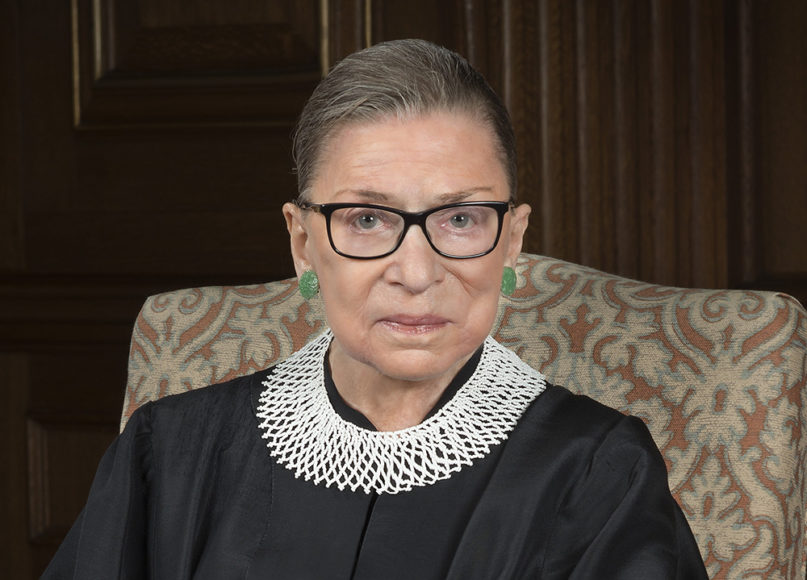(RNS) — No matter how, when or by whom Ruth Bader Ginsburg is replaced on the Supreme Court, her death immediately thrusts the religiously fraught issue of abortion into the center of the presidential campaign—a place where, it seems, neither candidate wants it. Yet, on no issue is the divide between the two starker.
Donald Trump is, of course, a pre-presidential convert to the pro-life cause. In March 2016, he made the rookie mistake of allowing as how, if abortion were banned, there would have to be “some form of punishment” for the woman. That sent the leadership of the pro-life community into an uproar, since for them it’s a fixed principle of rhetoric that while abortion is murder, there is to be no punishment for the person responsible for getting one.
Trump quickly recanted and went beyond the usual Republican prevarications to say that he would appoint Supreme Court judges who would overturn Roe v. Wade, the landmark 1973 decision that found abortion to be a constitutional right. And he appears to have done just that.
RELATED: Ruth Bader Ginsburg, who died Friday, was shaped by her minority faith
In this past term’s single abortion case, both of his Supreme Court appointees, Justices Neil Gorsuch and Brett Kavanaugh, voted to uphold a Louisiana law that would have required doctors performing abortions to have admitting privileges at nearby hospitals, thus leaving the state with just one abortion clinic. Ginsburg, of course, was on the other side. Can anyone (with the possible exception of Senator Susan Collins of Maine) doubt that, with a new Trump appointee, the 5-4 decision would have gone the other way?
But in contrast to 2016, Trump has not emphasized his interest in doing away with abortion rights, and for good reason. Since 2016, American public opinion has been trending pro-choice.
According to a Pew survey taken last year, 61% of Americans say abortion should be legal in all or most cases, as opposed to 38% who say it should be illegal in all or most cases. And they oppose the Supreme Court completely overturning Roe v. Wade by 70% to 28%.
While abortion generally serves as a greater determinant of voting behavior on the pro-life side, there is good reason to think that an increased threat to a woman’s right to choose will serve as a powerful motivation for the pro-choice majority. With Ginsburg’s death, such a threat is now in the offing.
For his part, Joe Biden has evolved from a Roe v. Wade opponent earlier in his career to a presidential candidate who, as of last year, opposes the Hyde Amendment — a 1976 measure that forbids federal funding of abortion under Medicaid. A Catholic who attends Mass weekly, Biden has thus far avoided laying out a full explanation for his evolution, or giving the kind of rationale for supporting Medicaid funding for abortion that, for example, the late New York Governor Mario Cuomo gave in his famous Notre Dame speech in 1984.
RELATED: Ruth Bader Ginsburg, who died Friday, was shaped by her minority faith
His evolved position has exposed him to angry denunciations from the Catholic right, up to and including some bishops. To be sure, he has received some aid and comfort from the other side as well. “I think that a person in good conscience could vote for Mr. Biden,” said Cardinal Joseph Tobin of Newark in a webinar last week. “I, frankly, in my own way of thinking have a more difficult time with the other option.”
Nevertheless, Biden’s position has put him at odds with his church, and in an election where conservative Catholic votes count in critical swing states like his native Pennsylvania, he’s had little incentive to push his pro-choice bona fides with the public at large.
Abortion is hardly the only issue on which the establishment of a solid conservative majority on the court would make a difference when it comes to religion. Another Trump appointee would likely result in decisions enabling churches to override state COVID-19 restrictions and hold in-person services. And “religious liberty” exemptions from anti-discrimination rules to healthcare mandates would before long become the norm.
But until November 3, it’s abortion that will be on the front burner. And both candidates are going to have to deal with it, for politically better or worse.






